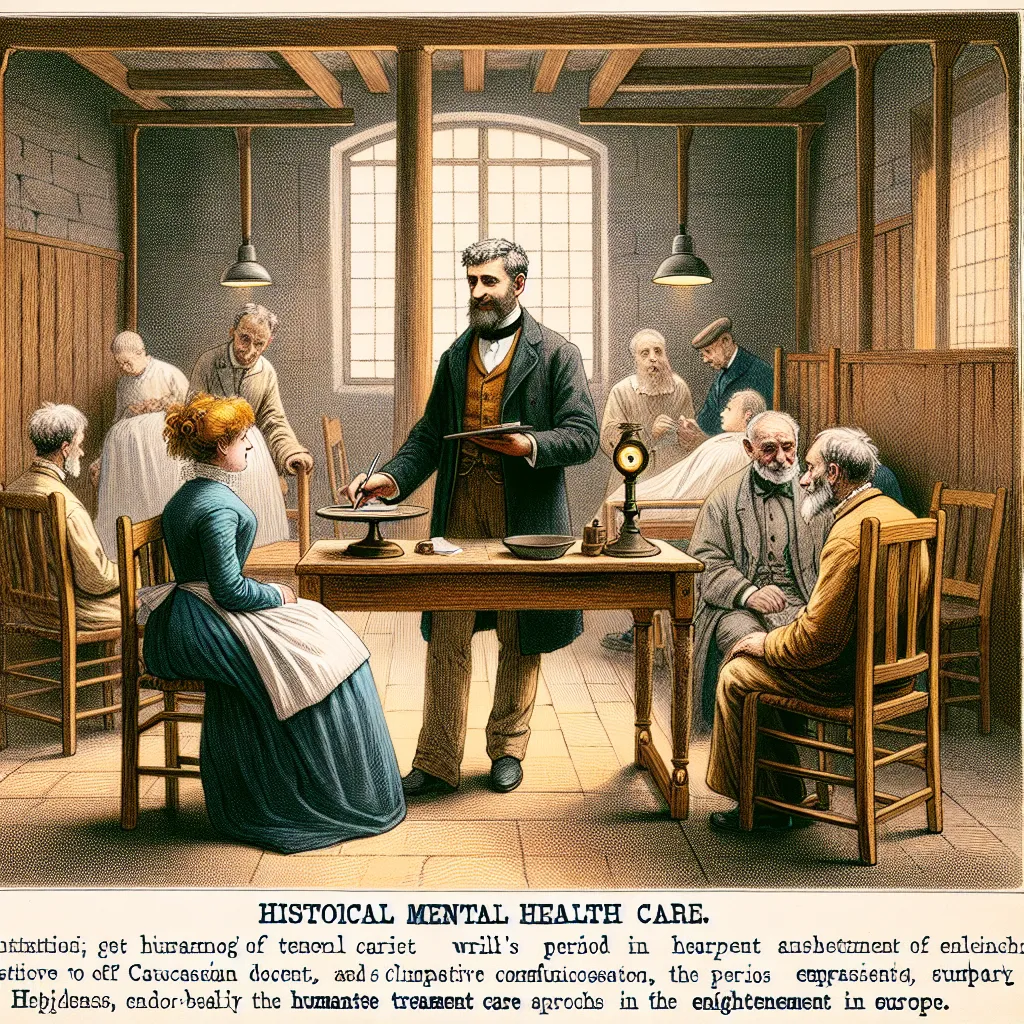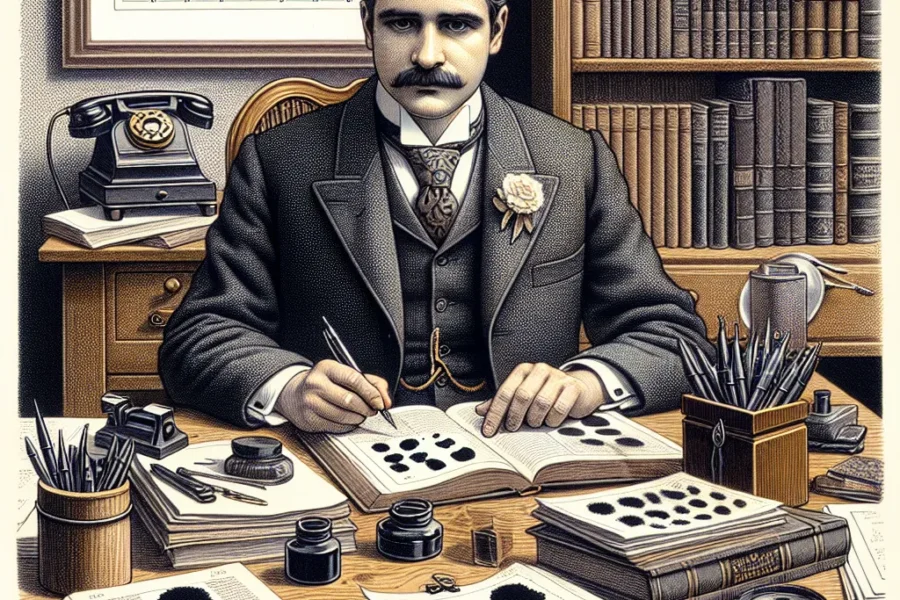Philippe Pinel’s Pioneering Work in Mental Health
The landscape of mental health has been revolutionized over the past centuries, with numerous figures contributing to the progressive shaping of psychiatric care. Among those, Philippe Pinel stands as a towering figure whose pioneering work laid the groundwork for modern mental health practices. Pinel’s contributions to psychiatry have been nothing short of transformative, marking a seismic shift in the way society perceives and treats mental illness.
Born in 1745 in the rolling hills of Jonquières, France, Philippe Pinel would grow up to challenge the status quo of mental health care. At the time, the mentally ill were routinely subjected to barbaric treatments and deplorable living conditions. It was against this backdrop that Pinel would advocate for a more humane approach to treating individuals with mental health disorders, a concept he popularized as “moral treatment.”
Pinel’s early career started in the field of medicine, but his interests increasingly veered towards the psychological aspects of care. In a time when the mentally ill were deemed incurable and often forgotten within the depths of asylums, Pinel’s perspective was not only innovative but truly groundbreaking. After completing his medical degree at the University of Toulouse and further studies in Paris, Pinel became increasingly disturbed by the mistreatment of psychiatric patients.
One of Pinel’s most notable contributions came during his tenure at the Bicêtre Hospital in Paris, where he served as the chief physician. Appalled by the chains and shackles used on patients, Pinel famously ordered their removal, advocating for a more compassionate approach. This act symbolized the birth of a new era in psychiatric treatment and is often dramatized as “the unchaining of the insane” – though some historical accounts suggest it may have been more metaphorical than literal.
Pinel’s methods extended beyond the mere physical unshackling of patients. He was an ardent believer in the power of conversation, understanding, and the establishment of a rapport between the doctor and the patient. He emphasized the importance of detailed case histories and the careful observation of patients, allowing for individualized treatment plans tailored to each person’s needs. These practices signaled a significant shift from the impersonal and often abusive treatments that were the norm.
By treating the mentally ill with dignity and respect, Pinel’s approach to mental health care espoused a level of empathy previously unseen in the field. His work at the Bicêtre and later at the Pitié-Salpêtrière Hospital in Paris demonstrated that many patients could recover or significantly improve with appropriate care and treatment. This challenged the prevailing belief that mental illness was untreatable or the result of moral or spiritual weakness.
In 1801, Philippe Pinel published his seminal work, “Traité médico-philosophique sur l’aliénation mentale ou la manie” (“A Treatise on Insanity”), which synthesized his observations and experiences. The treatise wasn’t merely descriptive; it categorized mental illnesses into different groups, an important foray into psychiatric nosology. It laid out principles for the humane and effective treatment of the mentally ill, and emphasized the potential for their rehabilitation.
Pinel’s work inspired a movement that swept across Europe and North America, leading to reforms in the way mental health institutions were run and how patients were treated. The ‘moral treatment’ movement advocated not only for improvements in the conditions of asylums but also for the rights of those with mental illnesses to receive proper care and the opportunity for recovery.
One cannot underestimate the role of Philippe Pinel in destigmatizing mental illness. By showing that the mentally ill were capable of improvement through compassion and understanding, he helped reshape public perceptions. The legacy of his work is evident in today’s focus on patient-centered care, the importance of the therapeutic relationship, and the comprehensive treatment of mental disorders with a combination of medication, therapy, and social support.
His influence also reached the legal realm. Pinel’s ideas prompted discussions about the ethical treatment of patients and the legal rights of the mentally ill, leading to legislative changes that protected them from exploitation and abuse. This was a profound shift in a society that had long marginalized and mistreated those with mental health conditions.
The innovation of Philippe Pinel can also be seen in how mental health professionals are trained today. His insistence on observation and understanding of individual patients set the stage for clinical internships and the emphasis on case studies within psychiatric education. This personalized attention to each patient’s history and condition remains a cornerstone of psychiatric training and practice.
Despite the centuries that have passed since Pinel’s era, his work remains relevant. The global mental health landscape continues to evolve, with ongoing challenges such as accessibility to care, the integration of mental health into primary health care, and the fight against stigma. Yet, Pinel’s core values of empathy, human dignity, and personalized care continue to guide mental health professionals worldwide.
In conclusion, Philippe Pinel’s pioneering work in mental health heralded a new dawn for psychiatry. His revolutionary methods emphasized compassion and moral treatment, laying the foundation for modern psychiatric practices. His legacy endures through the humane approach to treatment, the ongoing reforms in mental health care, and the persistent efforts to destigmatize mental illness. Pinel’s life and work serve as a lasting reminder that at the heart of mental health care is a respect for the inherent dignity of each individual. His pioneering spirit continues to inspire mental health practitioners and advocates, ensuring that those with mental health conditions are treated with the kindness and understanding they deserve. Through his contributions to mental health, Philippe Pinel not only changed the lives of his contemporaries but also shaped the future of psychiatric care for generations to come.



Leave a Comment